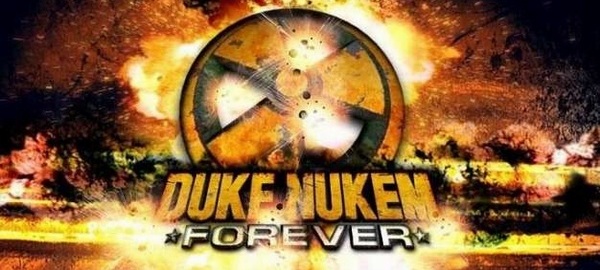Now this is hilarious. Remember George Broussard? You know, the lead designer of Duke Nukem Forever and co-founder of 3D Reamls? Well, it seems that Broussard is a Halo 4 fan as he bashed a reviewer for giving 343 Industries’ title a ‘mere’ 70/100 score. Although we don’t cover console games, we can’t simply sit back and let things explode without having a good laugh, right? After all, the final version of DNF was average at best and didn’t justify that legendary ‘released WID’ moto of 3D Realms, so who is Broussard to say that reviewers are wrong?
But let’s take things from the beginning. A couple of hours ago, Broussard tweeted and called EGMNow’s Brandon Justice a retarted for giving Halo 4 a 70/100 score, and that he had zero credibility.
It appears that Broussard believes Halo 4 should score more than that, as he tweeted later on that it’s fine if people are bored with shooters and feel that Halo 4 is the same thing. However, he once again stated that such a game deserves an 80 and that a 70 score is ridiculous.
Cold Cognition (not the reviewer of the game) responded and told Broussard that he should not be throwing around the word retard or critique anything at all, especially since he was the one behind such a mediocre game as Duke Nukem Forever, a game that promised to be the best of the best but ended as one of the worst modern-day FPS titles.
Broussard decided to explain his earlier comments, saying that a 70 is widely seen by everyone as “crap” and has been since the dawn of reviews, something that devs, pubs and press know that. And that’s where Broussard is wrong. In fact, this is what is – in general – wrong with the modern-day gaming industry. There is a reason why there is 0-100 scale. A 50 is an average game and a 30 is a crap game. A 70 is a great game. That’s the truth and publishers should realize that games cannot score 80+ scores all the time.
Ironically, Broussard then tweeted that reviewers should encourage credibility and accuracy. The point here, though, is that Broussard is not accurate with his claims and accusations. What’s also troubling us is that a lot of developers might be sharing Broussard’s opinion, meaning that most of them expect their games to hit a sweet 90 score, even though their games may not deserve such a score.
Broussard has also stated that he’s a fan of five stars system as ‘more of the rng gets used‘ and called 0-10 a silly system as it’s- in reality – a 6-10 system. The funny thing here is that a 4/5 and a 3.5/5 score translates to a 80 and 70. So we really don’t understand how things are so different or what is on Broussard’s mind. Is a 3.5/5 score more pleasing to the eye than a 70/100? Does this mean that a 140/200 rating is considered worse than a 70/100?
However, scaling is not the biggest issue of game reviews. The real problem here is that most publishers are not bothered reading the actual review and understand why a reviewer has rated a specific game with an X score. They don’t read to adjust and fix things. Most of them (and that applies to developers too) are after big numbers in order to use those Metacritic numbers to back their future projects up. And that’s precisely why we’ve been getting copy-cats from a lot of gaming studios (and why Medal of Honor: Warfighter was not up to what its old-school fans wished for).
And that’s why game reviews should not have any score at all. Readers, publishers and developers should read reviews, and see for themselves what the X reviewer had to say about the Y game. And that would benefit the entire gaming industry. But who are brave enough to implement such a policy? Now that’s the big question most readers should be asking the triple-A gaming sites!
John is the founder and Editor in Chief at DSOGaming. He is a PC gaming fan and highly supports the modding and indie communities. Before creating DSOGaming, John worked on numerous gaming websites. While he is a die-hard PC gamer, his gaming roots can be found on consoles. John loved – and still does – the 16-bit consoles, and considers SNES to be one of the best consoles. Still, the PC platform won him over consoles. That was mainly due to 3DFX and its iconic dedicated 3D accelerator graphics card, Voodoo 2. John has also written a higher degree thesis on the “The Evolution of PC graphics cards.”
Contact: Email

